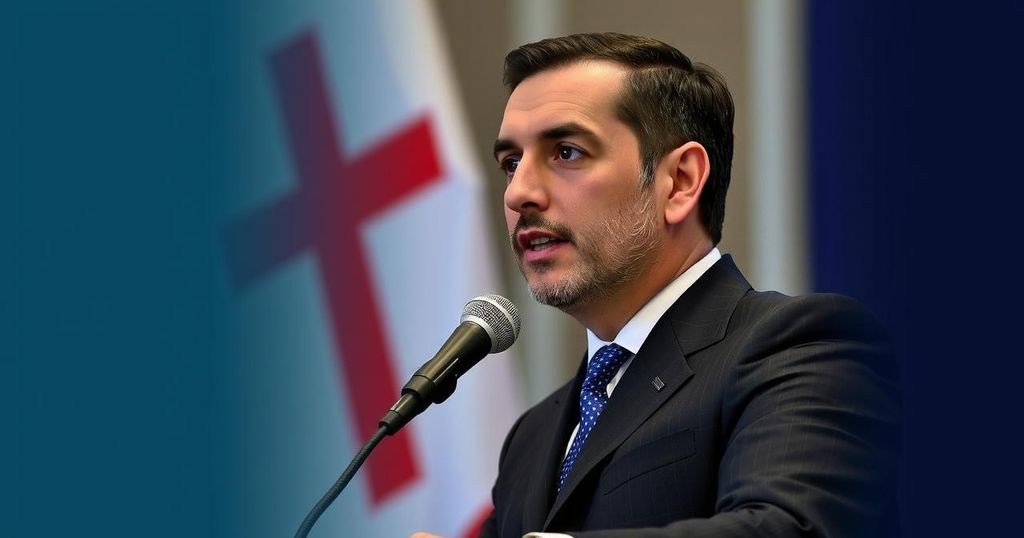Georgian President Declares Government Illegitimate Amid EU Accession Crisis

Georgian President Salome Zourabichvili has labeled her country’s government illegitimate, asserting her intent to remain in office beyond her term. This follows a controversial decision by the ruling Georgian Dream party to halt EU accession talks, leading to mass protests. Critics, including Zourabichvili, allege electoral fraud in the recent elections, galvanizing public sentiment in favor of EU integration and democratic governance.
In a critical political stance, Georgian President Salome Zourabichvili has deemed her country’s government illegitimate, asserting her intention to remain in office beyond her term’s conclusion next month. This declaration comes in the wake of Prime Minister Irakli Kobakhidze’s announcement that the ruling Georgian Dream party would suspend EU accession talks for four years, a move that has incited significant unrest in Georgia, where EU membership enjoys substantial public support.
The abrupt decision to halt EU negotiations has galvanized protests throughout the nation, leading to confrontations between demonstrators and authorities in Tbilisi. Zourabichvili, a critic of the Georgian Dream administration, claims that the parliamentary elections held on October 26, which resulted in Georgian Dream receiving nearly 54% of the vote, were fraudulent. She argues that consequently, the parliament lacks legitimacy to elect a new president, thereby asserting her ongoing mandate until a properly constituted parliament emerges.
Protests erupted following the government’s decision, with thousands gathering in Tbilisi against law enforcement’s use of force to disperse crowds. The situation is compounded by statements from various officials and institutions condemning the government’s deviation from its EU integration path. Notably, public figures from both government sectors and civil society have voiced their opposition, expressing a collective desire to uphold Georgia’s constitutional commitment to EU membership and democratic governance.
The halt to EU accession signifies a turning point in Georgia’s foreign relations, particularly as they relate to the West. The leadership, under the influence of billionaire Bidzina Ivanishvili, is increasingly perceived as veering towards anti-Western policies. This shift has resulted in criticisms concerning democratic backsliding and accusations of authoritarianism.
Georgia, a nation aiming for EU membership, is currently facing a significant political crisis following the recent parliamentary elections. The Georgian Dream party, which has maintained control over the government, has made controversial decisions that threaten the longstanding aspiration of EU integration. The population has expressed overwhelming support for EU accession, as evidenced by its constitutional endorsement. However, rising tensions between the government and opposition factions, compounded by allegations of election fraud, have spurred mass protests, revealing a populace determined to uphold democratic principles and EU alignment despite governmental resistance.
In summary, the political landscape in Georgia has become increasingly volatile following the Georgian Dream party’s decision to suspend EU accession talks and President Zourabichvili’s claims of illegitimacy against the ruling government. The protests ignited by these actions underline a strong public commitment to European integration and democratic values. As tensions persist, the future of Georgia’s political and foreign relations remains uncertain, particularly regarding its aspiration to join the European Union and the influence of pro-Russian sentiments within the current regime.
Original Source: www.theguardian.com








